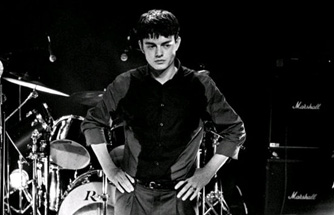|
|
Movie Review: ControlBy Matthew HuntleyNovember 15, 2007
But good performances also depend on the focus and enthusiasm of the director, and it's clear Anton Corbijn has nothing but love and affection for his main character. Corbijn is obviously a huge fan of Joy Division and knows in his heart just how influential Curtis would have become. His ode to this small icon is like a heartfelt thank you, a manifestation of Corbijn's bittersweet memory of a tortured soul. From a technical standpoint, the film is also beautiful to look at. It was shot in color but transferred to black and white, no doubt to symbolize Curtis' meek outlook as he neared his end. The soft focus suggests that everything Curtis saw was only right in front of him. He never gave himself a reason to look toward the future. One of the many, many things Corbijn gets right is the way he captures Curtis' depression, or at least the idea of depression. There is a shot where Curtis watches television because it is, in his mind, the only thing to do. He stares aimlessly into the tube then turns it off. This is such an honest representation of a depressed state, where people suffer because they don't know what to do next and every fiber in them feels lost. They feel they have nowhere to go but down. True, Curtis' behavior was often immoral, but Corbijn and Riley manage to make him a sympathetic individual whom we identify with and care for. From the film's point of view, Ian was a kind and gentle person who, like many depressed individuals, started to believe he was no longer living for himself, and no matter what decision he made, he believed he was going to let somebody down. In the end, he was convinced everybody hated him and the pressure and fear of those thoughts eventually got him at a young age. Curtis had lost control, and it resulted in one of life's great tragedies.
|

|
|
|

|
Friday, November 1, 2024
© 2024 Box Office Prophets, a division of One Of Us, Inc.


